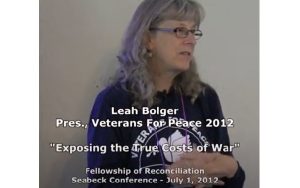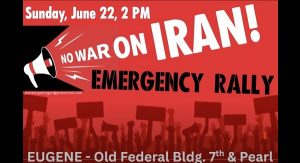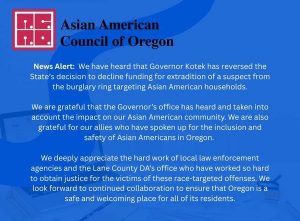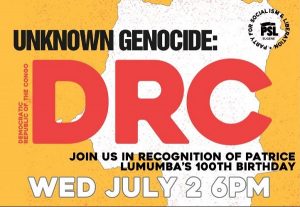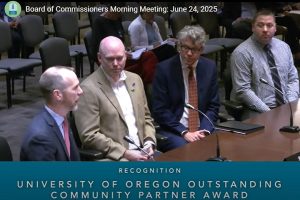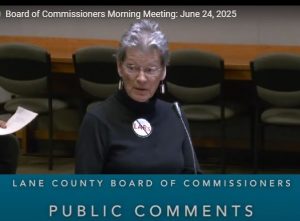Rabbi urges solidarity in response to hate crimes
9 min read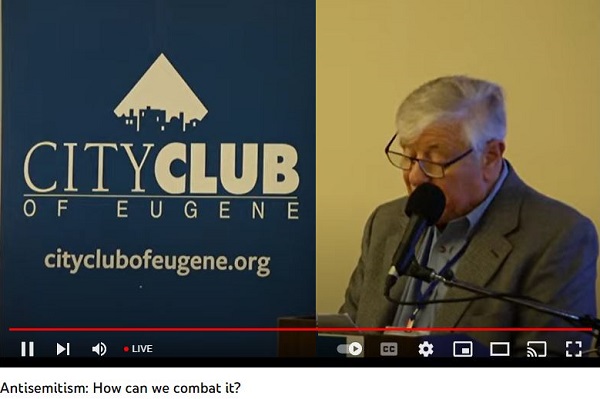
After fliers are found in local neighborhoods, a City Club program on how to fight back against antisemitism.
[00:00:10] Joel Korin (City Club): I told myself, ‘It could never happen here.’ Like many others, today, I’m not so sure.
[00:00:17] Rabbi Meir Goldstein, Rabbi Yitzhak Husbands-Hankin, and (FBI) Supervisory Special Agent Ryan Dwyer join us to discuss how we got to this point, the historical cultural forces leading to today’s antisemitism, and what can be done about it.
[00:00:34] Ryan Dwyer: As Joel mentioned, I’m Ryan Dwyer, I supervise the FBI office here in Eugene and in Medford. I’m also the civil rights program coordinator for the FBI’s Portland field office, which covers all of Oregon.
[00:00:45] In 2021, based on national trends, civil rights was elevated to the top criminal priority for the FBI. That’s a very significant change in the FBI’s approach and strategy. It also comes with additional resources for our teams and for our partners nationwide. And hate crimes continue to be our number one focus within the civil rights program.
[00:01:07] And that is, I think as everybody knows here, they are uniquely impactful. Like, a hate crime attacks an entire community, it doesn’t just affect those who are directly involved. It undermines a sense of security. It undermines our ability for our communities to do business and interact productively, and it undercuts our values as a nation and as Oregonians.
[00:01:27] So, with regards to antisemitism, we know from a number of statistical sources, members of the Jewish faith are targeted disproportionate to the population.
[00:01:35] In 2021, FBI hate crime statistics indicated there were 16 hate crime incidents targeting people of the Jewish faith in Oregon. By FBI definition, that means there was violence or threat of violence involved, or destruction to religious property. So that’s 16 times Jewish people in our state were targeted with violence or their sanctuaries were targeted. Looking more broadly at hate incidents, Oregon Department of Justice records tell us 257 times in 2022 people were targeted with anti-Jewish bias, 30 of those times here in Lane County.
[00:02:08] So that’s statistically remarkable. But we know statistics only tell part of the story. We also know, uniquely, Jewish people face threats from across the spectrum…and increasingly over the last five years, domestic violent extremists, or what we call racially-motivated violent extremists, all of these folks have anti-Semitism as the central tenet of their ideologies.
[00:02:29] And because of that and the threats to our Jewish community it’s one of our number one priorities in the FBI. And we know unfortunately, people in the Jewish faith and other faith communities will continue to be targeted in the foreseeable future. We know it’s the case. It’s not going to change. All of us here in the room, along with law enforcement, have an important role to play in fighting back against that.
[00:02:50] We know bias incidents and hate crimes are underreported. We can’t emphasize enough, we encourage everyone to report anything they feel is a crime. There’s nothing too small to report to law enforcement, and I know you may not hear that all the time from law enforcement, but I think I echo the sentiments of my colleagues at Eugene P.D., Springfield P.D., and other groups. If you feel you’ve seen a crime, or you feel like you’ve been threatened, please contact law enforcement.
[00:03:14] It’s incredibly important for us in law enforcement to have the context of the challenges our communities, the groups we’re serving, are facing, and to help make decisions on what might make your community the safest and the most secure it can be.
[00:03:27] Go to StandAgainstHate.oregon.gov, which is a phenomenal Oregon DOJ website with great, great resources available.
[00:03:35] So definitely the FBI is committed to working with the Jewish community, other targeted groups—groups of color, LGBT community—to protect them and ensure they’re able to live peacefully here in our community.
[00:03:47] Rabbi Meir Goldstein: What is antisemitism? Let’s start at the beginning. Judaism is an ethno-religion. It stands at the crossroads between an ethnicity and a religion. So that’s how you can have some folks who are Jews who are born Jews but are not religiously Jewish, they can practice other religions. And you may have people who are not born Jews into the ethnicity of Judaism, but become Jews because it’s a religion. So it’s both-and, and antisemitism will respond sometimes to one aspect, other times to another.
[00:04:23] So what is antisemitism? There are two parts to antisemitism. First part: Antisemitism is the hatred of Jews simply because they are Jews. And the second part: Antisemitism is a conspiracy theory that blames Jewish power for being responsible for whatever is most hated or most feared.
[00:04:47] In fact, the very word antisemitism was coined in 1879 to substitute for an older word, comes from Germany, the older word was Judenhass, or Jew hatred. It was coined so that it would sound more scientific and accurate, but Jew hatred is probably more accurate.
[00:05:07] Is antisemitism the same as racism, just with a different target? And the answer (in a very rabbinic way) is: ‘Yes and no.’
[00:05:20] So yes, here’s how antisemitism is similar to racism. It is, as some say, ‘punching down,’ which is, the antisemite sees the Jew as less than he is: less valuable, less important, sometimes less human. Here’s how it’s different, called ‘punching up,’ where Jewish power secretly controls whatever is most hateful or most feared in society. That’s unique to antisemitism. It makes it dissimilar to racism.
[00:05:53] Jews are somehow both subhuman and humanity’s secret master. That’s why it’s important to get both parts in there.
[00:06:01] So where does Jew hatred come from? Well, there are some medieval roots. The medieval roots hold that Jews are subhuman and demonic.
[00:06:12] Jews are responsible for deicide, the murder of a God, for the murder, specifically, of Jesus, and not just Jews who lived in the time of Jesus in the first century, but all Jews for all time, which is holding the individual Jews throughout history, being responsible collectively for something Jews are seen as having done at some point.
[00:06:37] Blood libel, which is a lie that Jews feed off of human blood, use it for ritual purposes or sometimes just for black magic. The claim of dual loyalty that you can never really trust Jews cause they’re actually secretly loyal to each other and not to whatever our collective society is. And that Jews must be marked. They must wear what’s called a Jew badge, a particular piece of clothing or something that will identify them. All that comes from the medieval period.
[00:07:13] Into the early modern period, we’re building these new things called nation-states, and now we will have new entities and relations of individuals called citizens and they’ll have rights that will be recognized. And the question is: Should Jews be allowed to be citizens of our new nation-states?
[00:07:31] What we saw bubble up in that period is this new form of political Jew hatred bubbling up on the left and the right where Jews were vilified for being rich and poor, powerful and powerless. Karl Marx wrote a pamphlet about Jews called The Final Solution; from the other end of the political spectrum, Henry Ford, a great capitalist and a very famous Jew hater, published and translated old Russian anti-Jewish propaganda, famous, called The Protocols of the Elders of Zion, translated it into English and freely distributed it throughout the United States.
[00:08:16] How is antisemitism and Jew hatred showing up today? Presumptions about Jews and hatred of them and negative stereotypes are pervasive in society, which means that many will adopt negative stereotypes about Jews, and adopt some of these antisemitic tropes, blaming Jews for things that are disliked in society without even knowing it.
[00:08:47] But some clear examples: The ‘Unite the Right’ rally from 2017, where you have various alt-right individuals marching around, chanting, ‘The Jews will not replace us.’ What they actually are referring to is something called the great replacement theory, in which Jews are held responsible for that which is most feared, which in this case is the so-called white genocide or the importing of minorities (who are looked down upon by folks on the alt-right and white supremacists) to take their jobs and to ruin their culture.
[00:09:28] Jews are also seen as being on the one hand race traitors and on the other hand really sneaky, because they look like they’re white, but they’re not really. But that Jews also, in the ‘punching up’ part, are the ones who are controlling and bringing all of these minorities here and destroying our culture. So they’re both one of the groups that white supremacists look down upon, but also they’re the ones that are secretly bringing people here and destroying our culture.
[00:09:58] So how does this play out? In the shootings of the Tree of Life Synagogue in Pittsburgh, the terrorist who went in there and murdered people, Jews, while they were praying, was motivated by the great replacement theory. He cited it in his diatribe. The terrorist who went in and murdered Muslims in the mosque in New Zealand also cited the great replacement theory. The terrorist who murdered people of various minority backgrounds in a Walmart in El Paso also was motivated by the great replacement theory.
[00:10:31] Eric Ward, who’s really an expert in white supremacy, one of the leading researchers in it, said the following, ‘Antisemitism is not at the core of white supremacy. It is the core of white supremacy.’ It is the only thing, it is the defining ideology across over 150 alt-right groups that unifies them.
[00:10:58] Rabbi Yitzhak Husbands-Hankin: There are people who really have difficulties in their own lives to such a depth that they look for some place to place their anger and the responsibility for their problems. I think that’s something we need to take note of as a society, that there are people with (what I consider) a mental illness, that, if it’s addressed early enough, if there are the kinds of resources to intervene, some of those people could be kept from going down a path that’s so destructive to society and to themselves.
[00:11:38] Going back to the early ‘90s, as a rabbi at Temple Beth Israel, some young people broke into Temple Beth Israel and stole a Torah. We found it and returned it (with the help of police), to its place in the ark in our sanctuary. The primary perpetrator in that had both parents in prison at the time and obviously was quite a disturbed young teenager.
[00:12:11] The sad thing about it is that several years later, he became one of the shooters at Temple Beth Israel when there was a drive-by shooting at TBI. And it’s always been confusing. Why? Why would anybody hate us? What is this about?
[00:12:30] That was a terrible trauma for the Jewish community. I remember that feeling of isolation, the feeling of vulnerability that these people could have this high-powered rifle and with armor-piercing bullets, shoot into our sanctuary.
[00:12:50] Thank God and thank people in our community, and I want to mention specifically Rabbi Dan Bryant, yes, thank you Rabbi, who did a wonderful job of rallying the community to come and stand with the Jewish community. And the standing-with was incredible. Thousands of people came, standing in solidarity with the Jewish community.
[00:13:22] I can’t begin to tell you how healing that was, how remarkably comforting it was. The day before I remember feeling very vulnerable and feeling like a target. And the day after that rally, I felt so good. I felt so cared for. I felt so integrated into the web of our community. There was such a deep lesson in that. There’s a deep lesson for the Jewish people, there’s a deep lesson for the broader community about the importance of responding.
[00:14:06] When we stand together, we’re incredibly strong. When any one of the vulnerable groups in our community is attacked or there’s an attempt to isolate, that’s when we need to step up and stand in solidarity with the others in this community.
[00:14:26] We need to be ready to stand forward. When there’s an antisemitic act, it’s an anti-societal act. When there’s an anti-African-American act, it’s against us all. When there’s an anti-LGBT act, it’s against us all. And we need to know how to stand up, to report, and to stand up together ‘cause that really takes the wind out of the sails for those who want to be destructive.
[00:15:00] John Q: After antisemitic fliers are spread throughout the community, a City Club program encourages solidarity.
